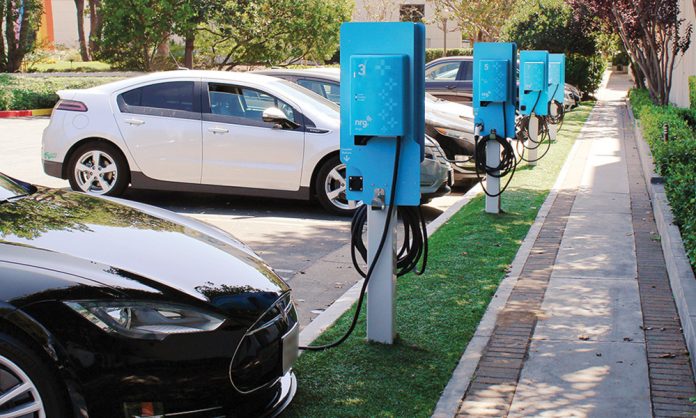The government has approved the establishment of 40 electric vehicle (EV) charging stations along Pakistan’s motorways with an initial power tariff of Rs39.75 per unit, part of the first draft of the national EV policy.
According to a news report, this initiative aims to support EV adoption in Pakistan, alongside proposals to incentivize the production of electric two and three-wheelers through financing options.
In a recent meeting on the EV policy, the Pakistan Banks Association (PBA), led by Chairman Zafar Masud, presented a financing plan to stimulate demand for two- and three-wheeler EVs, the report added.
Masud recommended offering a rate of Kibor plus 3% to encourage banks to participate, though the chair suggested capping it at Kibor plus 2.5%.
The proposed debt-to-equity ratio of 80:20 was also discussed, with the chair advising a 70:30 ratio, consistent with State Bank of Pakistan (SBP) guidelines.
The Secretary of the Ministry of Industries highlighted the importance of insurance coverage for EVs, including protection against battery theft. The committee approved the financing framework, which will be refined in coordination with the Finance Division and SBP.
A working group was tasked with identifying locations for charging stations along motorways, with support from the Ministry of Communication, Ministry of Power, Ministry of Petroleum, and the Federal Board of Revenue.
The National Highway Authority (NHA) has identified service stations at intervals of 120 km from Peshawar to Karachi as suitable locations for charging stations, where OMCs expressed willingness to set up stations with power connections.
The Central Power Purchasing Agency-Guarantee (CPPA-G) also presented a report supporting the Rs39.75/kWh tariff, which received broad approval. The ministries and CPPA-G aim to facilitate oil marketing companies (OMCs) in setting up charging stations within three months.
In addition, a group was formed to create a customs duty and tax structure to encourage EV manufacturing and adoption.
Another group will work on emissions tracking and carbon credit mechanisms, with plans to establish a dashboard at the Industries Ministry for monitoring.
The Industries Secretary reported progress in drafting the EV policy, focusing on regulations for charging stations, setting the power tariff, and incentivizing the demand for two- and three-wheeler EVs. The Revenue Mobilisation, Investment and Trade (ReMIT) project of the Commerce Ministry has also pledged to provide expert assistance for policy development.
























